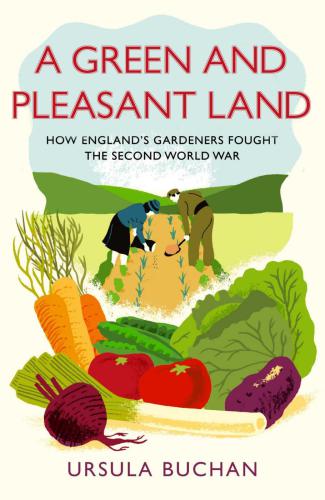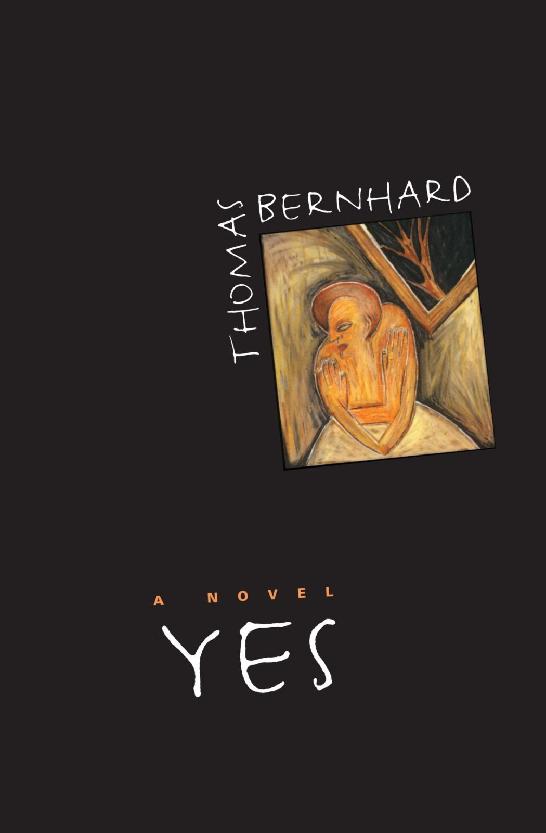oleebook.com
A Green and Pleasant Land: How England's Gardeners Fought the Second World War de Buchan, Ursula
de Buchan, Ursula - Género: English
Sinopsis
SHORTLISTED FOR INSPIRATIONAL BOOK OF THE YEAR AT THE 2014 GARDEN MEDIA GUILD AWARDS.
The wonderfully evocative story of how Britain's World War Two gardeners – with great ingenuity, invincible good humour and extraordinary fortitude – dug for victory on home turf.
A Green and Pleasant Land tells the intriguing and inspiring story of how Britain's wartime government encouraged and cajoled its citizens to grow their own fruit and vegetables. As the Second World War began in earnest and a whole nation listened to wireless broadcasts, dug holes for Anderson shelters, counted their coupons and made do and mended, so too were they instructed to 'Dig for Victory'.
Ordinary people, as well as gardening experts, rose to the challenge: gardens, scrubland, allotments and even public parks were soon helping to feed a nation deprived...
Descargar
Descargar A Green and Pleasant Land: How England's Gardeners Fought the Second World War ePub GratisLibros Recomendados - Relacionados
Reseñas Varias sobre este libro
4 Stars
It took me a while to finish this one but it was well worth the effort. Fascinating and detailed.
history-british history-british-ww2 history-ww27 s Stella299
Enjoyable and important in equal measure; If it's wet, read this book, if its not then get outside and grow stuff3 s Duncan M SimpsonAuthor 3 books1 follower
A thoroughly enjoyable read, looking at the truth and the personal stories behind the Dig for Victory campaign when Britain's gardeners enlisted in the home front war to provide enough food for the population. Before the war, Britain imported most of its food and the authorities knew from nearly running out of food during the First World War that everything had to be done to grow food at home so gardens and parks were dug over and allotments provided wherever possible. The miracle was that it worked, in a kind of way. Britain didn't run out of food though mostly that was because food was severely rationed. But the diggers for victory did their bit. I learned loads about the conduct of the war on the home front, a refreshing change from looking at war as a series of battles, and understood much better how the experience of equality and sharing shaped the country when war was done. Ursula Buchan writes simple, clear prose and as well is an entertaining writer who kept me quietly amused through what could easily have been a tome, which it was anything but. A great piece of social history. history2 s CarolineAuthor 17 books37 Read
There is nothing reading about the privations suffered by the British public on the home front during WW2 to make you grateful to be living in the twenty first century with plenty of food and nothing rationed. However it was a time when we were all in it together and everyone grew their own vegetables and vast amounts of rosehips were gathered to make syrup and everyone kept calm and carried on. Well it wasnt quite that. In her meticulously researched book Ursula Buchan does an excellent job of separating myths and propaganda from the facts. Although lots of people did dig for victory but this involved only just over half of all households (55.2%) despite people being bombarded with advice and exhortations by the government.
The book is is not just facts though as Ursula Buchan combines giving you an overall picture with personal stories and delightful details. The members of the Womens Institutes and the Womens Land Army come out as the heroines. The latter were not given any recognition never mind medals after the war and after questions were asked in the House of Commons they were allowed to keep their greatcoats (p280) and that was all.
And did the Dig for Victory and other campaigns work? Buchans view is that they did in terms of raising morale as much as to provide food. One example being the collecting of rosehips from the hedgerows to make rosehip syrup. The target was 1,500 tons (p170) but the children who went out collecting managed 330 tons in total. Nonetheless everyone involved will have felt they were doing their bit towards the war effort. Im very much a post-war baby but reading the book made me get out my vegetable seed catalogues and to start to make plans.
war1 Sarah759 8
Really enjoyed it, especially the first half which seemed better structured. I guess there was more of a story in the change to Britain on a war footing. I learned a lot - and it was fascinating - I don't think my generation, who arrived just as rationing had finished, understand what a profound impact the war had at every level. The structures of normal life change for ever even after the bombing stops and the armies come home.history naturalist plants1 Juliet WilsonAuthor 13 books44
This is a fascinating (though almost too detailed) account of how the British Government, through the famous Dig for Victory campaign encouraged and cajoled the population to grow food crops and rear livestock during the Second World War. It details the contributions of the Women's Land Army, the Women's Institute and professional gardeners to the flourishing of British gardens and to the improvement of our national diet during the war. It also examines how gardening helped people keep themselves occupied, stop worrying and improve their general well being during a time of huge stress.
It looks at the propoganda produced by the government, including leaflets and short films on topics such as composting and the work of professional bodies such as the Royal Horticultural Society. The book is enlivened by extracts from Mass Observation diaries, which give more personal insights into the times.
The book mostly covers what happened in English gardens during the war, Wales, Scotland and Northern Ireland are rarely mentioned.
It's interesting to compare the government mobilisation of ordinary people during the war with what we probably need in terms of mobilisation of people during the current climate crisis.
It's well worth reading if you're interested in a different perspective on the 2nd World War or if you're interested in the history of gardening. However there are so many statistics and so many facts that it can seem overwhelming and it doesn't merit the 'Highly Entertaining' comment from the Daily Mail. history Helbob198
Interesting in parts. I'm not sure it was worth the time spent for a handful of really interesting facts, but certainly an alternative angle to view the events of WWII. I particularly d the Mass-Observation diary entries of ordinary people up and down the country and would have been happy to see more. If you're a gardener, allotmenteer, or history geek you might be interested. Deborah MakariosAuthor 4 books8
More a look at a variety of different aspects of wartime gardening than a sustained narrative, but interesting nonetheless. (A second bookmark is handy for keeping one's place in the endnotes, so as to be able to flick back and forth at will.)gardening non-fiction Julie12
I received this book free from Goodreads First Reads.
I was very happy to be chosen to receive a free copy and very much looked forward to it's arrival as I am interested in both history and gardening and also have an allotment. I dipped into the book rather than read it straight from front to back and found it well written and informative. Clearly well researched but a little too text book for my expectation. There are approximately 30 pages at the end dedicated to the select bibliography, notes and references which gives you an indication. The text of the book is peppered with these quotations and references which took me back to my university days and made reading the book more chore than pleasurable.
I was very much undecided about the rating. I think if you expect a text book it warrants a four or five but as I was expecting a slightly easier read I think a three to four is about right. Kathleen141
I really enjoyed this book. Garden columnist Ursula Buchan describes the importance of gardening in Great Britain during WW2. Some of the topics she explains are: 1) the Govt push for families to grow vegetable gardens because of food shortages; 2) Massive education programs to help citizens learn how to grow vegetables, recipes, pest control and preserve food 3)The psycholoigical boost gardenihg gave citizens during and after the war including those grieving the loss of their sons and husbands 4) the massive ripping up of gorgeous estate gardens to provide land to grow much needed food 5) the boost gardening gave POW camp residents in Britain, 6) gardening work provided to women and young girls who replaced male gardeners in the military, and 7) the recovery of a few beautiful estate gardens after the war. Fascinating read. Caroline342 8
I'm not sure how to rate this book.
The cover says "highly entertaining" but it that's an overstatement.
After far too many stats and figures, it eventually got more interesting.
And inspiring.
Overall, I enjoyed it, and wanted to keep reading... that paid off, as stats gave way to stories, and the terrain broadened to cover war-time BBC, letters from gardening prisoners-of-war, and the recovery (or not) of the "great houses" after VJ Day.
J.188 29
A book delivered in dry British delivery about the "victory garden" movement in England. In America, it was a patriotic duty to grow a garden. In Great Britain, it was about survival and growing food in the bombed out lots of central London, claimed parks and beyond. I said a bit dry but so worth it if you are a WWII buff or into the survival of horticulture. Linda85
I almost abandoned this book 3 times. Frequently repetitive, maddeningly detailed and littered with inconsequential facts, this is only for those readers who want to know EVERYTHING about gardening in England during WWII. Liz2,345 44
Lost the book. Naomi6 1 follower
A useful history of gardening in the Second World War, clearly written and with lots of interesting anecdotes. Vikas Datta2,178 133
Heart-warming and very readable account of how even the little things tip the balance in wartime.. LoreleiAuthor 2 books30
Really interesting (well, for those who love gardening, that is :)war-stories Jane72 3
Autor del comentario:
=================================












